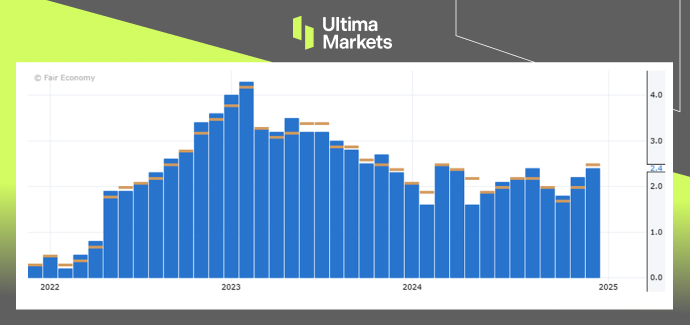Important Information
This website is managed by Ultima Markets’ international entities, and it’s important to emphasise that they are not subject to regulation by the FCA in the UK. Therefore, you must understand that you will not have the FCA’s protection when investing through this website – for example:
- You will not be guaranteed Negative Balance Protection
- You will not be protected by FCA’s leverage restrictions
- You will not have the right to settle disputes via the Financial Ombudsman Service (FOS)
- You will not be protected by Financial Services Compensation Scheme (FSCS)
- Any monies deposited will not be afforded the protection required under the FCA Client Assets Sourcebook. The level of protection for your funds will be determined by the regulations of the relevant local regulator.
Note: UK clients are kindly invited to visit https://www.ultima-markets.co.uk/. Ultima Markets UK expects to begin onboarding UK clients in accordance with FCA regulatory requirements in 2026.
If you would like to proceed and visit this website, you acknowledge and confirm the following:
- 1.The website is owned by Ultima Markets’ international entities and not by Ultima Markets UK Ltd, which is regulated by the FCA.
- 2.Ultima Markets Limited, or any of the Ultima Markets international entities, are neither based in the UK nor licensed by the FCA.
- 3.You are accessing the website at your own initiative and have not been solicited by Ultima Markets Limited in any way.
- 4.Investing through this website does not grant you the protections provided by the FCA.
- 5.Should you choose to invest through this website or with any of the international Ultima Markets entities, you will be subject to the rules and regulations of the relevant international regulatory authorities, not the FCA.
Ultima Markets wants to make it clear that we are duly licensed and authorised to offer the services and financial derivative products listed on our website. Individuals accessing this website and registering a trading account do so entirely of their own volition and without prior solicitation.
By confirming your decision to proceed with entering the website, you hereby affirm that this decision was solely initiated by you, and no solicitation has been made by any Ultima Markets entity.
I confirm my intention to proceed and enter this website Please direct me to the website operated by Ultima Markets , regulated by the FCA in the United Kingdom
Ultima Markets App
Trade Anytime, Anywhere

Tokyo Inflation Boosts BOJ Rate Hike Expectations
Tokyo Core Inflation Rises, Factory Output Falls
In December, core inflation in Japan’s capital city rose, while inflation in services remained stable, according to data released on Friday, keeping market speculation alive that an interest rate hike could occur soon. However, factory production dropped in November for the first time in three months, signalling that weakening global demand is impacting the export-dependent economy.
The Tokyo core consumer price index (CPI), which excludes the volatile prices of fresh food, climbed by 2.4% in December compared to the previous year, slightly below the market expectation of a 2.5% increase. This followed a 2.2% year-on-year increase in November. Another index, which excludes both fresh food and fuel prices and is closely monitored by the Bank of Japan (BOJ) as a better reflection of demand-driven inflation, rose 1.8% in December, down from a 1.9% increase in November.

(Tokyo Core CPI y/y. Source: Statistics Bureau)
Service prices in Tokyo increased by 1.0% in December, up from a 0.9% rise in November, reinforcing the BOJ’s view that ongoing wage growth is encouraging businesses to raise prices for services.
The Tokyo inflation figures, seen as an early indicator of nationwide trends, are closely monitored by policymakers for insight into how much progress Japan is making toward consistently meeting the BOJ’s 2% inflation target, which is crucial for further rate hikes. Market participants are anticipating that the BOJ will raise rates to 0.5% by March of next year, with heightened focus on whether such a hike will be announced at the central bank’s next meeting on January 23-24.
Disclaimer
Comments, news, research, analysis, price, and all information contained in the article only serve as general information for readers and do not suggest any advice. Ultima Markets has taken reasonable measures to provide up-to-date information, but cannot guarantee accuracy, and may modify without notice. Ultima Markets will not be responsible for any loss incurred due to the application of the information provided.
Why Trade Metals & Commodities with Ultima Markets?
Ultima Markets provides the foremost competitive cost and exchange environment for prevalent commodities worldwide.
Start TradingMonitoring the market on the go
Markets are susceptible to changes in supply and demand
Attractive to investors only interested in price speculation
Deep and diverse liquidity with no hidden fees
No dealing desk and no requotes
Fast execution via Equinix NY4 server









